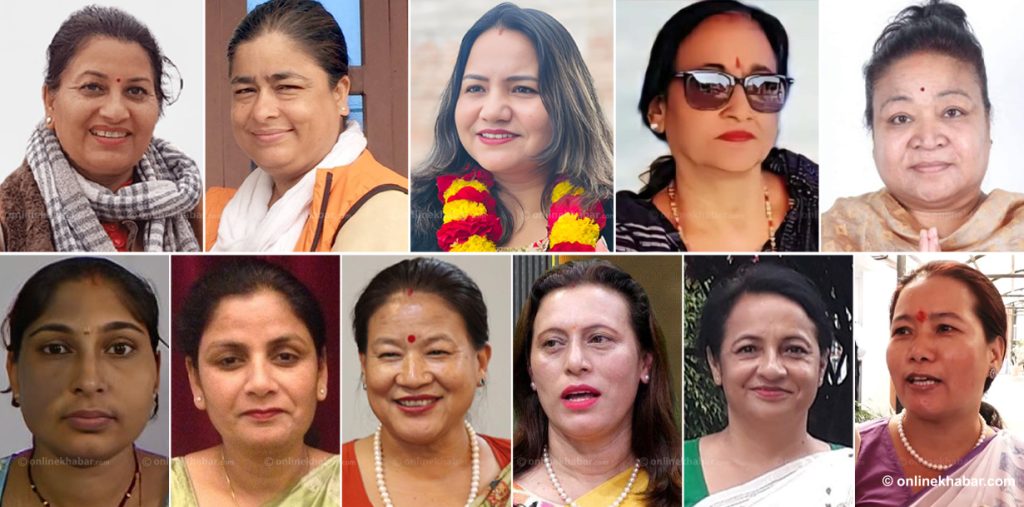
About a month ago, Union Women and Child Development Minister of India, Smriti Irani’s opinion about menstruation not being a ‘handicap’ to be granted a paid leave caused a stir among Indian women workforce, activists and policymakers. Irani’s take on how menstrual leave exacerbates discrimination against women in the workplace rather reflected the impact of social stigmas on national policies, which echoes true in the socio-cultural context of Nepal as well.
In Nepal, menstruation-based discrimination leads to an annual loss of women’s lives and causes a lack of dignified and hygienic solutions for women. In such a scenario, provisions such as paid menstruation leave could sound like a far-fetched idea to be incorporated into workplace policies in Nepal. However, this is just an example of how socio-cultural beliefs and practices shape policies and work structures that are inequitable and unresponsive to the needs of its diverse population.
Across all the sectors- public, corporate and development sectors, work culture is influenced heavily by discriminatory socio-cultural norms and fails to address the structural inequities and injustices. Despite numerous inclusive policies such as the National Inclusion Policy of Nepal, the National Gender Equality and Social Inclusion Policy, the Child Rights Act, and the National Social Inclusion and Protection Policy adopted by the government, the deep-rooted social inequalities and injustices impact the implementation process.
This article explores how sociocultural practices impact work culture and how the lack of inclusive work policies exacerbates socio-cultural discrimination. It aims to advocate for the necessary reforms in the workplace structure and strategies to better respond to the needs of the diverse community they serve.
Stereotyping women

In Nepal, only 28.5 per cent of working-age women are involved in formal employment. The disproportionate brunt of household, child care and caregiving responsibilities that unquestionably fall under women’s shoulders enhances the likelihood of women quitting the workforce after marriage or childbirth. Our work culture that prioritises fixed and long working hours with less flexibility makes it difficult for women to balance their personal and professional responsibilities.
Even when employed, women are most likely to take on informal jobs and lower-paying positions due to societal mistrust of female leadership. World Bank states that vulnerable employment, which often excludes formal work arrangements, income security or social protections, is almost 30 per cent higher among women than men (2021), which is higher than the average rate in South Asia. The representation of women at the decision-making level is minimal with only 33.1 per cent of women in national parliament, and only 13.9% of women in leadership positions, as per a World Bank report.
Workforce diversity data in the civil service sector also mirror these disparities with only 15 per cent women, 14 per cent indigenous (Janajatis), 11.5 per cent Madhesis, and 2.8 per cent Dalits among 80 thousand civil servants.
The private sector, which is mostly family-led in Nepal, puts little to no effort into ensuring diversity. The development sector, a flagbearer of inclusion, also has a low representation of marginalised groups with only 1.6 per cent of women from the Madhesh/Terai community. The result is guided by the misconception that hiring women and marginalised groups degrades performance.
Nepal’s patriarchal problem

Sexism and misogyny extend beyond households and society to workplaces as well. Although legal instruments such as the Labor Act 2017 and the Sexual Harassment in Workplace (Prevention) Act 2014 are in place, women bear explicit and implicit biases based on their gender.
Maternity leave of up to 98 days is mandated as per Nepal’s Labor Act 2017. However, nearly 70 per cent of the organisations deny the rights citing inconvenience and causing deliberate discrimination against women during the recruitment process.
To address these issues, a significant reformation of work culture is required. The workspaces should be equitable and respectful to the multi-purpose roles women and marginalised people assume in society. The aftermath of the pandemic has seen a global shift towards remote work and flexible hours. Although the work-from-home system is further known to amplify the workload for women, offering flexibility in terms of time and mobility can be a desirable step towards a feminist workspace reformation.
Furthermore, Nepali organisations should conduct their diversity and inclusion assessment to understand the current diversity gaps, acknowledge the value that diversity brings, and also abide by the national and international laws on inclusion. It is important to promote an open, transparent and accountable approach that will ensure no employee will be treated unfairly based on their gender or cultural identity. Teamwork, collaboration and open communication should be promoted rather than competitive, micromanagement and hierarchical practices.
Moreover, the workplace should be reformed in a way that is aligned with the current demands, lifestyles, and priorities of the newer generation. With Generation Z expected to constitute 25 per cent of the workforce by 2025, organisations must cater to their expectations, emphasizing diversity, mental health sensitivity, fair policies, and growth opportunities. For organisations focused on growth and sustainability, meeting the evolving demands of the new generation becomes paramount.
In conclusion, organisational systems in Nepal should demonstrate adaptability to changing trends, actively promote equity, and provide the flexibility necessary to accommodate the diverse roles men and women play in society.























